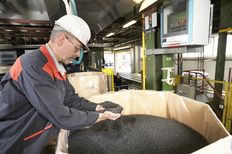- LANXESS to acquire DSM Elastomers for EUR 310 million on a cash and debt-free basis.
- The acquisition will be financed by LANXESS out of existing liquidity and is expected to be EPS accretive as of 2011.
- The transaction is subject to approval from antitrust authorities and is expected to close in early 2011.
- DSM Elastomers produces EPDM with plants in the Netherlands and Brazil, totaling 200,000 metric tons annual capacity.

Acquisition Details
LANXESS and Royal DSM N.V. have agreed in principle for LANXESS to acquire DSM Elastomers for EUR 310 million on a cash and debt-free basis. The acquisition price represents an EBITDA multiple of roughly 6 based on the expected EBITDA of 2010. LANXESS will finance the acquisition from existing liquidity, and it is expected to be EPS accretive starting in 2011.
Transaction Conditions
The transaction will be finalized after a consultation process with DSM employees' representatives in the Netherlands and is subject to antitrust authority approval. The closing is anticipated in the first months of 2011.
Operational Impact
DSM Elastomers, based in Sittard-Geleen, has approximately 420 employees worldwide and is expected to achieve sales of about EUR 380 million in 2010. The company operates EPDM plants in Sittard-Geleen, the Netherlands, and Triunfo, Brazil, with annual capacities of 160,000 and 40,000 metric tons, respectively. LANXESS plans to base the headquarters of the combined EPDM businesses in Sittard-Geleen.
Market and Technology
The global EPDM market is projected to grow at a single-digit percentage annually over the next decade, driven by demand in China and Brazil. Through this acquisition, LANXESS aims to strengthen its technology base by accessing DSM's ACE technology, which reduces energy and production costs while broadening EPDM applications. LANXESS will consider implementing ACE technology in its existing plants.
EPDM Applications
EPDM is primarily used in the automotive industry and also in plastics modification, cable and wire, construction, and oil additives industries. Its properties include low density, good resistance to heat, oxidation, chemicals, and weathering, as well as good electrical insulation.

